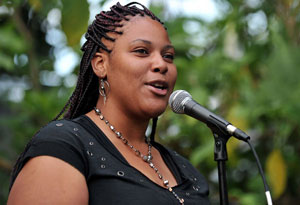Famous Poets Reveal How They Found Their Calling

Photo: Getty Images
How did they know they were meant to be poets? We polled Pulitzer Prize winners, poet laureates, and professors to find out.
Maxine Kumin was caring for a family of small children in the Massachusetts suburbs and writing little more than "jingly light verse" in the 1950s, when she saw a brochure for an adult education creative writing course on poetry, and signed up. It was through that course that she met classmate Anne Sexton; they started carpooling together and began holding raucous poetry workshops at each other's houses with fellow poets (Maxine's kids would see her setting out snacks for a workshop and say, "Oh no, not the poets again!" and ask to sleep in the room over the garage). Kumin honed her craft by working on poems in her head while chauffeuring her children to their various activities, and the connections she made through that workshop helped to jumpstart her career. In 1981 Kumin became Poet Laureate of the United States. Carole Muske-Dukes feels like she had no choice but to become a writer, given her childhood in St. Paul, MN. "My mother was from that last generation of Americans who learned poems by heart in school, and she recited everything—Milton, Wordsworth, Emily Dickinson—she just spoke poetry as she went about her housework." Muske-Dukes remembers in particular her mother pushing her on a swing to the lines "How would you like to go up in a swing, / Up in the air so blue?" by Robert Louis Stevenson. "Those moments touched me. In the sense that I was meant to be a poet, I was receptive to it all, and the words stayed with me." Muske-Dukes is currently the California Poet Laureate.
Azure Antionette had been working a grueling office job when she came home one night to her Montclair, California, apartment and watched an episode of Def Poetry Jam. The spoken-word poet Marty McConnell was giving an electrifying performance that ended with the words, "Do not let this universe regret you." As Antoinette remembers it: "With that last line my arms were literally in the air meaning, I'm done! It changed my course of thinking: You can't let the world not know you were here—you've got to be impactful. That piece definitely influenced my decision to do spoken word full time." Antoinette quit her job and called her mother to announce, "I'm going to be a poet! " She was all passion and no plan, but she started hitting the open mic circuit in earnest, and soon joined a Los Angeles-based non-profit that promotes poetry among teenagers. Antoinette is now a working spoken-word poet and youth literacy advocate.
Next: Poets explain where they get their inspiration
Find Your Calling



